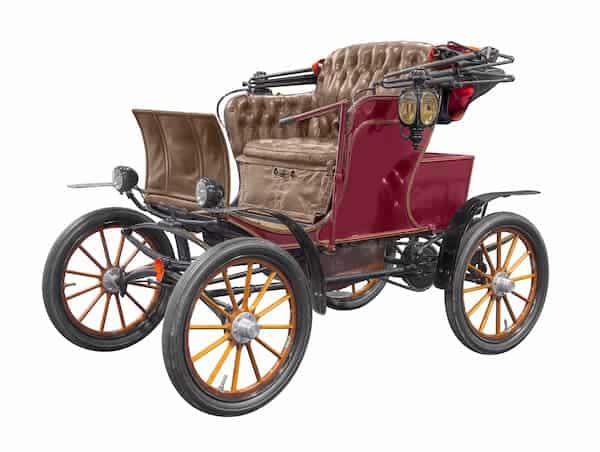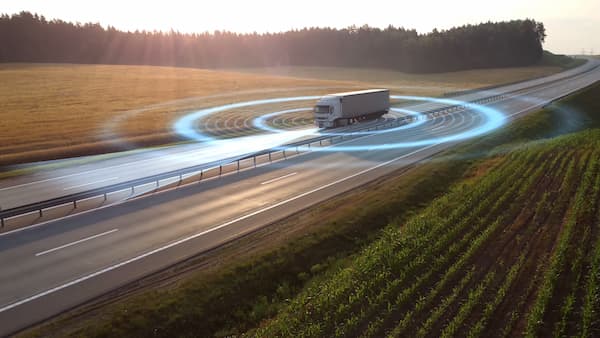The invention of the first electric car is attributed to multiple inventors who were part of the development of crude electric carriages in the late 1820s and 1830s. While it is challenging to pinpoint a single inventor, these early innovators laid the groundwork for the practical, commercially available electric vehicles that emerged in the 1890s. These vehicles led to the establishment of electric vehicles as a viable form of transportation, even setting a vehicular land speed record around 1900. However, due to a combination of factors including cost, speed, and range, their popularity dwindled in the early 20th century when compared to internal combustion engine vehicles. Despite this decline, the electric vehicle made a comeback in the 21st century, propelled by technological advances and environmental concerns, leading to a significant rise in their adoption worldwide
Table of Contents
Toggle- The Dawn of Electric Mobility: Unveiling the Inventor of the First Electric Car
- The Electric Carriage: A Symphony of Minds
- A Race to the Future: The 1890s Boom
- The Twentieth Century: A Temporary Eclipse
- The Resurgence: A New Millennium of Electric Dreams
- A Legacy Electrified
- History of The Electric Vehicle
- Pioneers of Electric Propulsion
- Ányos Jedlik – The Hungarian Visionary (1828)
- Thomas Davenport – The American Innovator (1834)
- Professor Sibrandus Stratingh – The Dutch Trailblazer (1835)
- Gustave Trouvé – The French Electrical Engineer (1881)
- Thomas Parker – The British Electrification Pioneer (1884)
- Andreas Flocken – The German Electric Car Pioneer (1888)
- William Morrison – The Scottish-American Chemist (1891)
- Camille Jenatzy – The Belgian Speed Record Breaker (1899)
The Dawn of Electric Mobility: Unveiling the Inventor of the First Electric Car
The quest to identify the inventor of the first electric car takes us back to an era of ingenuity in the late 1820s and 1830s. Unlike stories of singular groundbreaking inventions, the birth of the electric car is a tapestry woven by numerous inventors, each contributing to the development of electric carriages. It’s within the bustling innovation of the 1890s that electric vehicles transcended from experimental curiosities to commercially available transports, marking a pivotal era of electric mobility.
The Electric Carriage: A Symphony of Minds
The earliest electric carriages were crude in design but revolutionary in concept. These prototypes laid the foundational work for the electric vehicles that would soon take the streets by storm. The inventor’s identity remains a collective mystery, a homage to the many who dared to dream of electrified transport.
A Race to the Future: The 1890s Boom
In the 1890s, the electric car’s narrative shifted gears, accelerating from theoretical designs to practical machines crגuising the thoroughfares. It was during this golden era that electric vehicles reached a noteworthy milestone — achieving the land speed record, a testament to their potential that rivaled the era’s internal combustion counterparts.
The Twentieth Century: A Temporary Eclipse
Despite their early success, electric vehicles faced a steep decline in the early 20th century. The culprits were manifold: prohibitive costs, modest top speeds, and limited ranges compared to the burgeoning internal combustion engine vehicles. For a time, electric cars retreated to niche roles in commercial and public transport, particularly in rail vehicles.
The Resurgence: A New Millennium of Electric Dreams
As the 21st century dawned, so too did a revitalized interest in electric vehicles. This renaissance was fueled by growing environmental concerns, the quest for sustainable transportation infrastructure, and leaps forward in electric vehicle technology. Such factors have ignited a global shift in the automotive industry, with electric car sales surging past significant milestones in the past decade.
A Legacy Electrified
The story of the first electric car is not a tale of a lone inventor but a chronicle of collective innovation. The current upswing in electric vehicle adoption is a tribute to these early pioneers’ vision and persistence. As we witness electric vehicles once again gaining prominence, it’s a fitting homage to the unnamed inventors who sparked this silent revolution on wheels.
History of The Electric Vehicle
The history of the electric vehicle is a collective tale rather than one of a single inventor. The first crude electric carriages from the late 1820s and 1830s were the result of work by several inventors and pioneers in Europe and the United States. For instance, innovators like Ányos Jedlik in Hungary, Thomas Davenport in the United States, and Professor Sibrandus Stratingh of Groningen, Holland, were all early experimenters with electric propulsion. They each developed some form of electric motor and vehicle during this period. However, it was not until the 1890s that commercially viable electric vehicles were introduced, marking the true beginning of the era of electric transportation. The specific names of all individuals involved are not documented, reflecting the widespread and collaborative nature of this innovation.
Pioneers of Electric Propulsion
Ányos Jedlik – The Hungarian Visionary (1828)

In 1828, Ányos Jedlik, a Hungarian inventor, created a small-scale model car powered by an electric motor he designed. This early experiment laid the groundwork for future electric vehicles.
Thomas Davenport – The American Innovator (1834)

Thomas Davenport, an American blacksmith, crafted a battery-powered electric motor in 1834 and later applied this invention to operate a small locomotive, demonstrating the motor’s potential for transport.
Professor Sibrandus Stratingh – The Dutch Trailblazer (1835)

In the Netherlands, Professor Sibrandus Stratingh, alongside his assistant Christopher Becker, built a small-scale electric carriage in 1835, propelled by non-rechargeable primary cells they developed, moving the concept of electric mobility forward.
Gustave Trouvé – The French Electrical Engineer (1881)

Gustave Trouvé, a French electrical engineer, adapted an electric motor to a tricycle, creating one of the first recorded electric vehicles to be driven on public roads, pioneering portable electrical energy for transport.
Thomas Parker – The British Electrification Pioneer (1884)

Thomas Parker, known for electrifying the London Underground, constructed an electric carriage in 1884 that utilized high-capacity rechargeable batteries. His work significantly advanced electric transport in Britain.
Andreas Flocken – The German Electric Car Pioneer (1888)

Andreas Flocken is credited with crafting one of the earliest electric cars in Germany, the Flocken Elektrowagen in 1888. His creation is often considered to be the first real electric automobile, incorporating a basic frame and an electric motor to transport passengers.
William Morrison – The Scottish-American Chemist (1891)

The Scottish-born chemist, William Morrison, immigrated to America and in 1891, introduced his version of an electric vehicle in Des Moines, Iowa, which was a battery-powered carriage that spurred interest in electric vehicles in the United States.
Camille Jenatzy – The Belgian Speed Record Breaker (1899)

Camille Jenatzy, a Belgian race car driver, built the “La Jamais Contente” in 1899, which was the first car to break the 100 km/h speed barrier, underlining the competitive potential of electric vehicles.
These pioneering engineers and inventors each contributed vital pieces to the complex puzzle that was the early electric vehicle. Their collective ingenuity laid the groundwork for today’s electric cars, shaping the future of sustainable transportation.




